Reiki and elders

| Photo by Audrey Hotchkiss |
The world is aging rapidly. In my home state of Maine, the population of age 65 and over is expected to double in the next two decades. According to the World Health Organization, the median age of the world's population is projected to increase by 10 years between 2000 and 2050.
At the same time we are aging, we are learning Reiki in unprecedented numbers. The 2007 National Health Survey [for the U.S.] showed that "...more than 1.2 million adults had used an energy healing therapy, such as Reiki, in the previous year."We are aging, and learning Reiki. We are learning to take care of ourselves, and to help others, with our healing hands. We will not stop doing Reiki when we turn 65.
What if Reiki could help us reconnect, elders and their children, to work together to heal the world? We are forming that future, now, as we do the work of healing with our hands. Each day, as we age another day, add another fine layer of wisdom, our practice deepens and our presence here on Earth brightens. Our work as elder healers beautifies each wrinkle, each gray hair.
Working in elder communities
To introduce Reiki to elders, you have to go where they are - community groups, independent and assisted living communities, and long term care facilities are a few of the venues you might visit. Your approach to doing Reiki has to adapt. For example: massage tables are unlikely to be useful, given space constraints and risk of falls for frail elders; permission and informed consent may not be as straightforward as with younger clients; and you must gain the trust of staff responsible for elder care.
My first elder client was referred by staff at a local nursing home, where I volunteered and had done Reiki presentations. He rarely spoke -- he was bedridden with end-stage Alzheimer's in a local nursing home. Treatment had be given in his bed or reclining chair. Permission was obtained in writing from his daughter. Further, I sought nonverbal consent from him, reaffirmed at every visit. Sometimes, his body language said, "not today".
Reiki helped him relax his tightly clenched muscles, improving his ability to swallow food. I found an intuitive connection with him that allowed unspoken storytelling between us. To help him self-treat between sessions, I attuned him and reminded him at every visit that he could do Reiki for himself. In the last year and a half of his life, he received regular treatments, and a massage therapist and a reflexologist, both Reiki-trained, joined me to assure he had this work for at least a half hour a day, six days a week.
This gives you an idea of what's possible. Imagine a world where all elders could have this kind of support.
When I introduce Reiki to a new group of elders, I sometimes find Reiki practitioners among them. Carl Barker, an elder friend, learned Reiki years ago along with his then-wife Nancy, who had Parkinson's disease. Carl writes "...one of the major symptoms of Parkinson's is uncontrollable tremors of various parts of the body. Many times,at bedtime, Nancy would experience extreme tremors of her legs which would make it difficult to get to sleep or to stay asleep. We had great success in controlling these tremors by my administering Reiki to her for a few minutes at bedtime." Carl self-treats as well: "I have just had a new surgical procedure on my heart to control atrial fibrillation.... Many times during this ordeal I have self administered Reiki and found it very helpful."
Reiki for caregivers
Judy McCracken, CEO of Reiki Rays of Hope for Caregivers in Ohio, urges us to "get out there, get into hospice, get into nursing homes where people are." Reiki Rays has been in existence for three and half years, and has already taught their 1,000th caregiver, free of charge, supported by significant grants and collaboration. They started with caregivers of Alzheimer's patients, funded by the Mt. Sinai Healthcare Foundation, and collaborated with the Alzheimer's Association of Ohio and Case Western Reserve School of Nursing. A pilot study showed reduced stress and improved quality of life for caregivers, along with improvement in memory-related behaviors among the patients.
Judy's enthusiasm and dedication are infectious. She told me that "...of all I've done in life, the most fulfilling thing has been the Reiki work, sharing it and spreading it...opens so many doors...can't teach it fast enough!"
If you want to do Reiki with elders, visit and study their website. A good start would be the Reiki News article about them.
Reiki research for elders
The gold standard for clinical research, convincing to medical audiences and major funding sources, is the controlled double-blind study. These are expensive, and challenging to design. There are just a few of these studies on record, and what I can find of the study reports show mixed results.
Pilot studies are less rigorous, with smaller groups of study subjects, and are used to indicate promising directions for larger studies. Results from pilot studies are therefore not considered conclusive - a good thing to remember if you are planning to present Reiki to audiences responsible for elder clinical care.
Here are three pilot studies that concern the effect of Reiki on elder populations. I have corresponded or met with authors of these studies, and trust in their sincerity and qualifications.
1. Potential benefits of Reiki treatment for Alzheimer's patients.
2. Potential relief of pain, anxiety and depression in older adults.
3. Preliminary and measurable clinical benefits of Reiki in post-heart attack patients.
Be careful and balanced about how you present Reiki to elder care facilities. Reiki research is in early stages yet, therefore making extravagant claims of benefits, or citing pilot studies as if they are conclusive, will be unhelpful to your credibility with clinical audiences. Simply explain Reiki's non-invasiveness, ease of practice in a variety of settings, and the potential for more relaxation and less stress among the elders in that community. Giving sample treatments is also a great convincer.
Reiki for healing the world
Rahel Warshaw-Dadon teaches Reiki to Israelis and Palestinians together, overcoming tremendous obstacles to hold her classes. The nonprofit project is Reiki for Peace. I met Rahel on two occasions, on her visits to the U.S. to teach Reiki and publicize her project. I am eternally grateful to her for awakening me to the importance of self-treatment. Reiki for Peace is a great example of how projects for good can be formed around Reiki. Elders have the life skills, connections and vision to create these projects.
A bright future
This brief view of Reiki and elders barely touches on the work already being done. People are digging into the details, organizing projects and nonprofits, doing research, and learning Reiki for the sake of themselves and others.
Imagine - millions of elder Reiki hands awaken, as the world ages and faces new challenges. Watch, as those hands heal, stitch together torn social fabric, and reweave the web of life.
Can you see what might blossom?
If you practice Reiki, and if you become older every day, then you are part of this movement. Let it spark the joy in your heart.
Jeffrey Hotchkiss is an elder, Reiki Master, and founder of EldersBloom, a nonprofit bringing Reiki to elders.












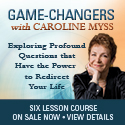
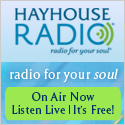








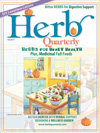
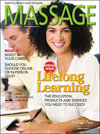
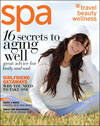








2 Comments:
I love that you attuned the elder. What a super idea! Meredith Kendall, Reiki Nurse.
What a wonderful gift as a massage therapist, working with elder and hospice clients using this is just another way to touch them with compassion. Eileen ~ Elder Massage Therapist
Post a Comment
<< Home